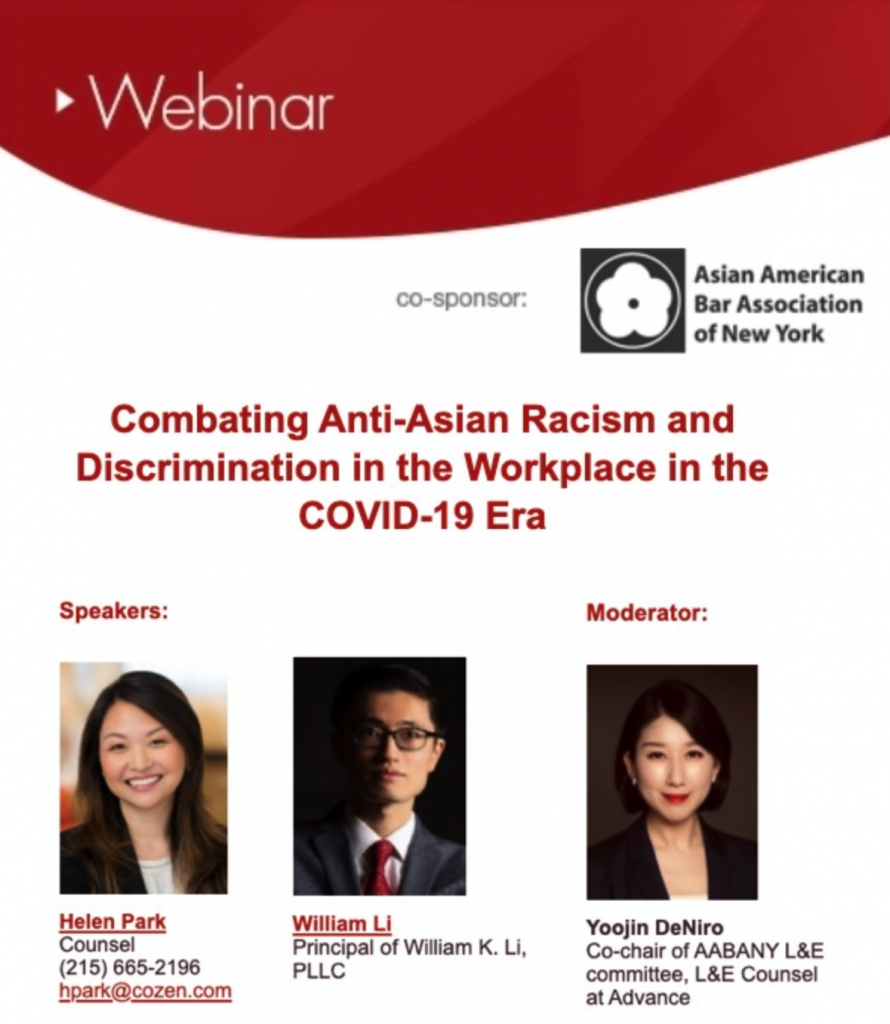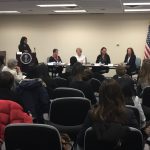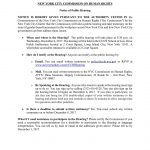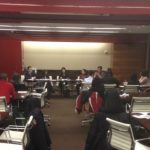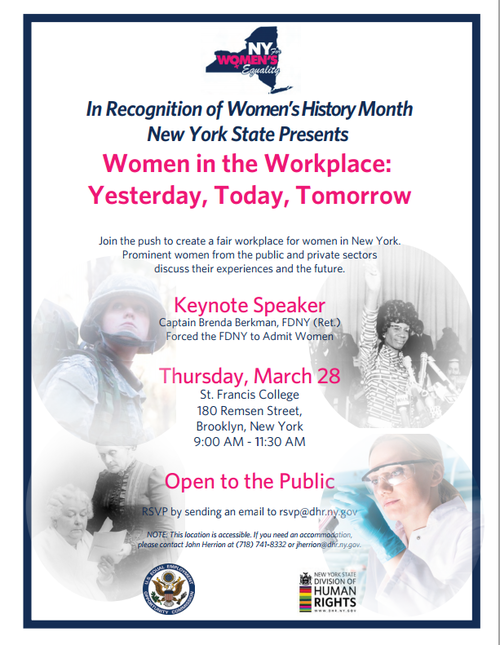On July 28, 2020, the Asian American Bar Association of New York (AABANY) hosted an event addressing diversity, inclusion, and equity in the workplace and beyond. Moderated by Margaret Ling, Director of Business Development and Co-Chair of the Real Estate Committee at AABANY, the panel featured: William H. Ng, Shareholder at Littler Mendelson and former Co-Chair of the Labor & Employment Law Committee of AABANY; Donna Dozier Gordon, Director of Diversity and Inclusion at USTA; Asker A. Saeed, Diversity and Inclusion Consultant and Principal at Saeed Consulting; Sean Bacchus, CEO and Founder of the Executive Diversity and Inclusion Council; and Prof. Meredith R. Miller, President of the Network of Bar Leaders.
The program began with an acknowledgment of Congressman John Lewis, a civil rights icon who recently passed away. Margaret urged the participants to follow the Congressman’s famous words, to get in “good trouble,” as they work to make their communities more equitable and representative.
Will Ng opened by recounting his experience with diversity and inclusion while working in large law firms. He noted that law firms need to have support from management and leadership in order to succeed in creating a more diverse workplace. He also stressed that recruitment was not the issue, but rather, retaining diverse, younger talent.
Asker Saeed followed by outlining steps that may help large law firms advance their diversity and inclusion efforts. First, law firms should think about their reason for promoting diversity: not only is it the right thing to do, but it is also better for business. Firms should hire the best people, and the best attorneys are not only one gender, race, ethnicity, or sexuality. Second, firms should examine their systems and procedures, particularly in lateral hiring and promotions. For example, when partners are asked to recommend people to a position, they are likely going to recommend individuals who look like them or remind them of themselves, thus perpetuating the status quo that partners should be white, male, straight, etc.. Thirdly, firms should hire and pay someone to be in charge of diversity and inclusion for greater accountability, as well as create a specific budget for diversity and inclusion initiatives. Finally, law firms should create more opportunities for all people to prove their abilities and advance in the organization.
Meredith R. Miller added that, in 2016, the American Bar Association identified discrimination as professional misconduct. She emphasized that firms should not focus on not discriminating, but rather being anti-discrimination and anti-racist. She also urged bar associations to build pipelines for minority communities in the legal field.
Donna Gordon examined the connection between diversity and inclusion in the workplace and the Black Lives Matter movement. Due to the nation’s changing landscape, especially after the Black Lives Matter movement, the success of a firm will depend on its ability to hire and retain diverse talent. Black Lives Matter has reignited corporate interest in diversity and inclusion. However, despite the long history of these diversity initiatives, African Americans still do not experience as much advancement in the workplace. Donna urged participants to focus on addressing the gaps in the African American talent pipeline by tapping into wider networks.
Finally, Sean Bacchus stressed that organizations must be recognized for their progress and held accountable for the work they are not engaging in. Mentorship and sponsorship from senior leaders towards minorities are very important, especially given the prevalence of nepotism in large firms. Sean also urged firms to not only target Ivy League students during recruitment but also look at the CUNY system.
We thank Margaret Ling for organizing and moderating the successful event, and the panelists for offering their valuable insights. Attendees received 1.0 credits in the diversity, inclusion, and elimination of bias requirement, and 0.5 credits in the ethics requirement. To view a recording of the program, go to https://www.youtube.com/watch?v=yxb4uylxkMQ or click the image above.


